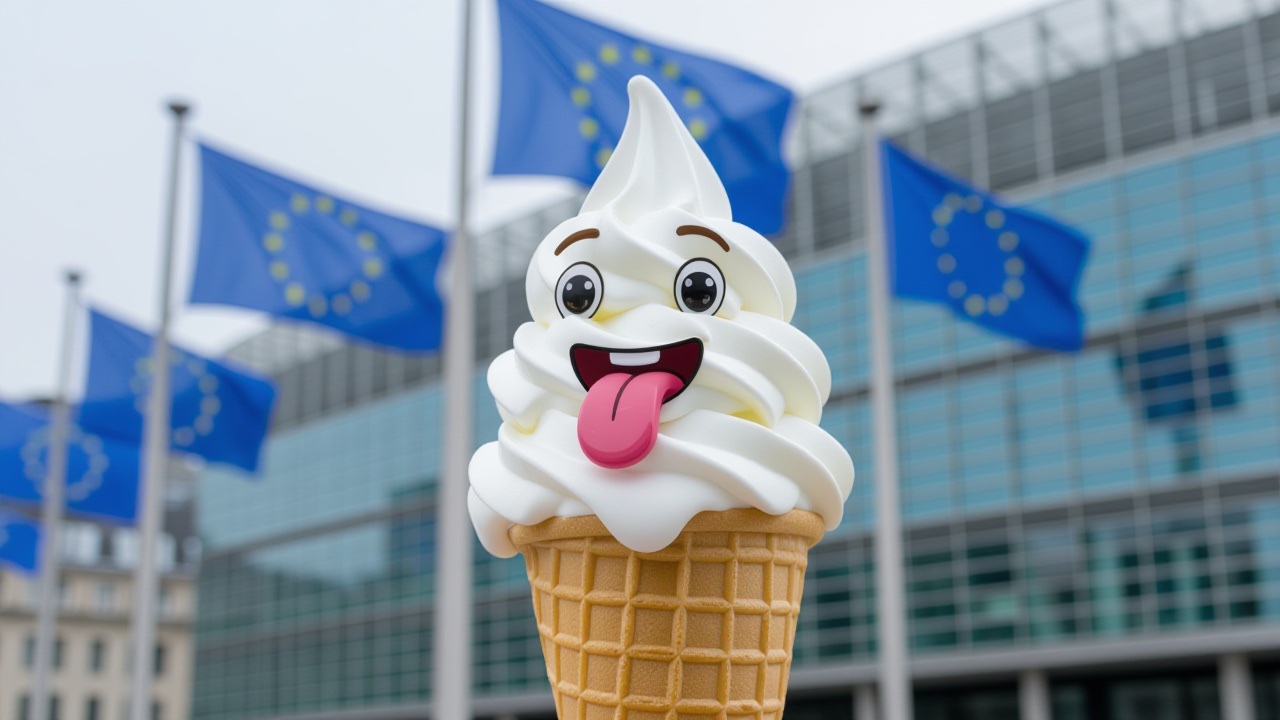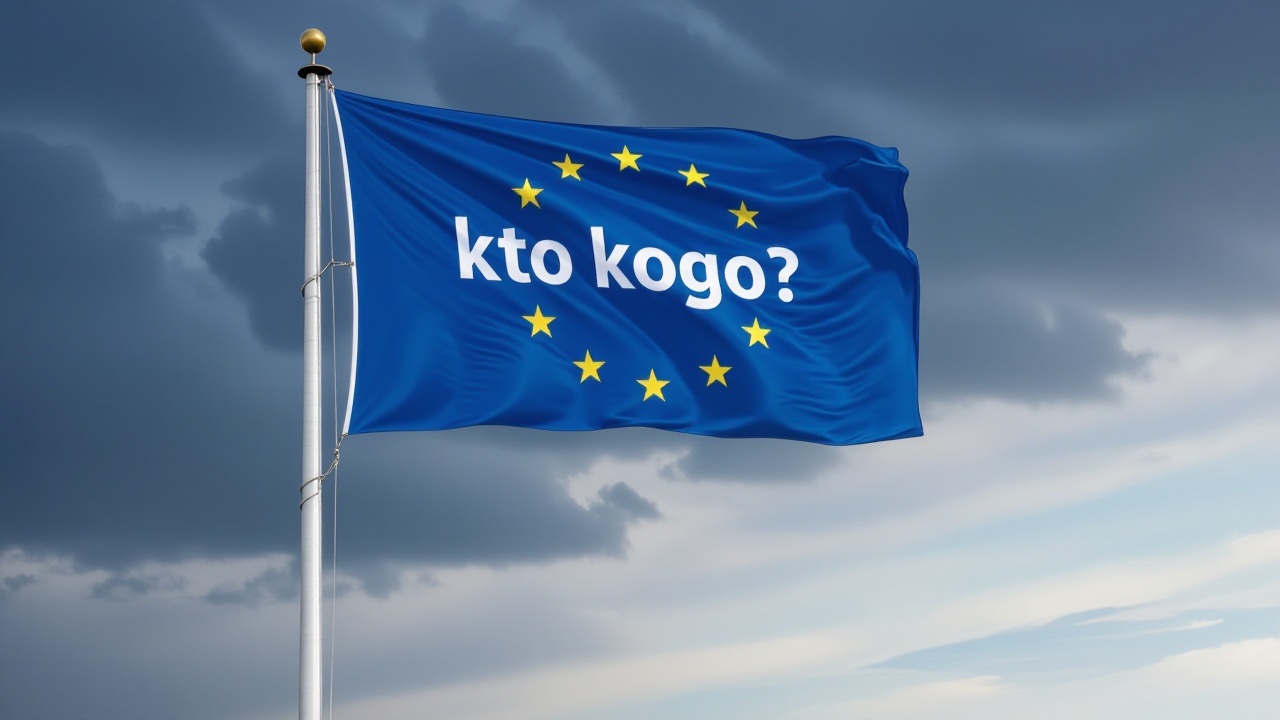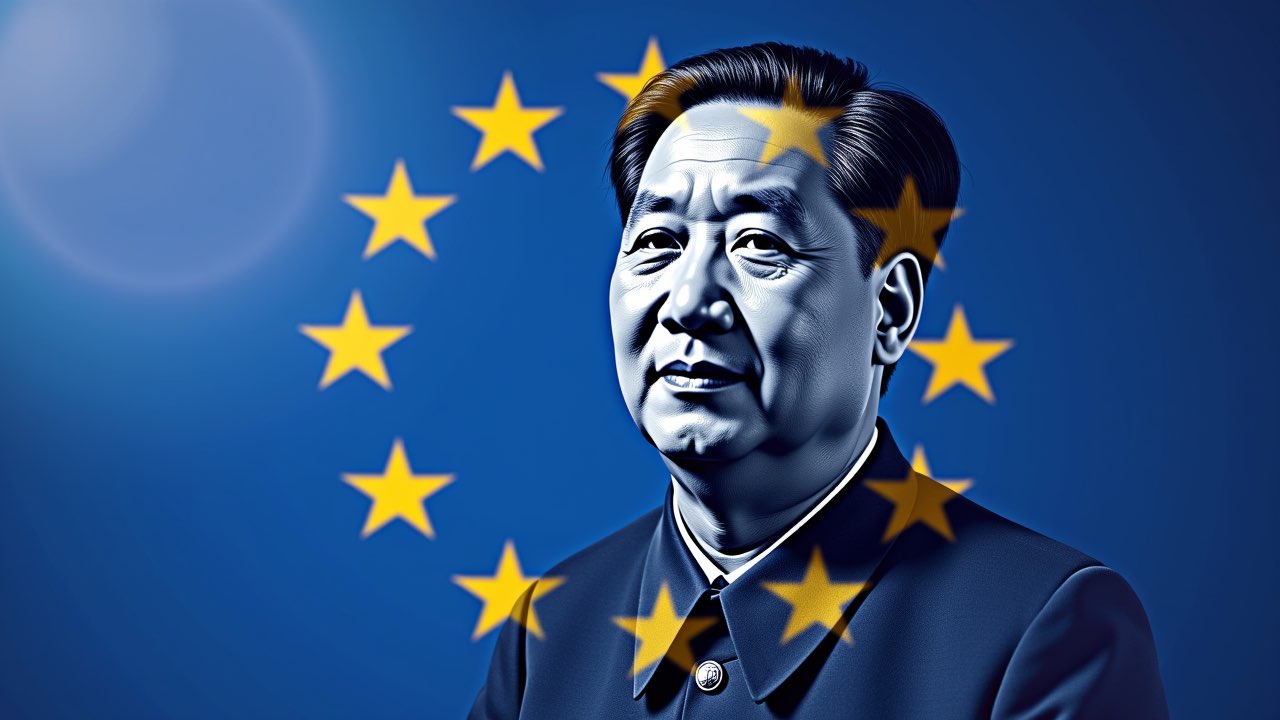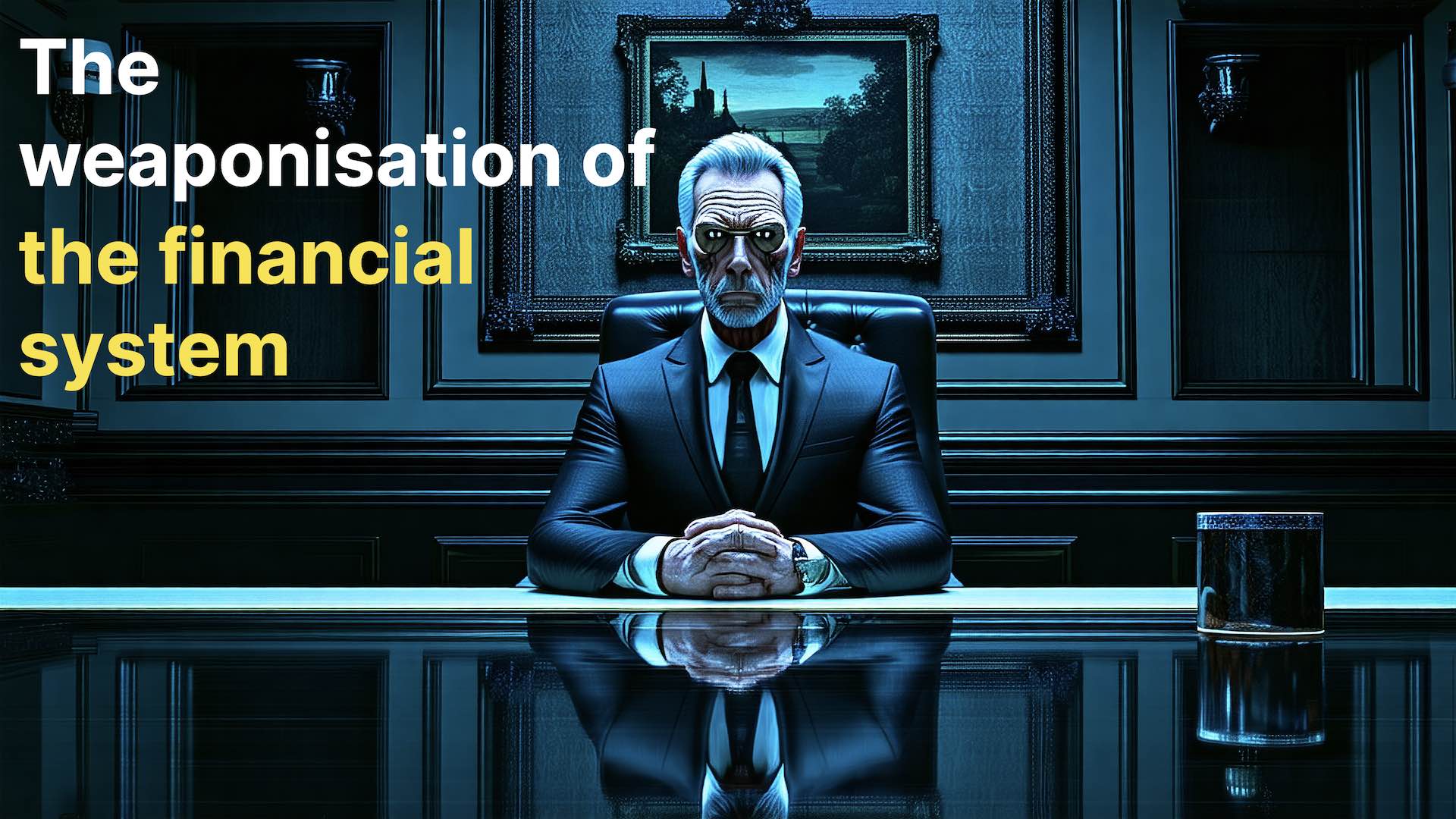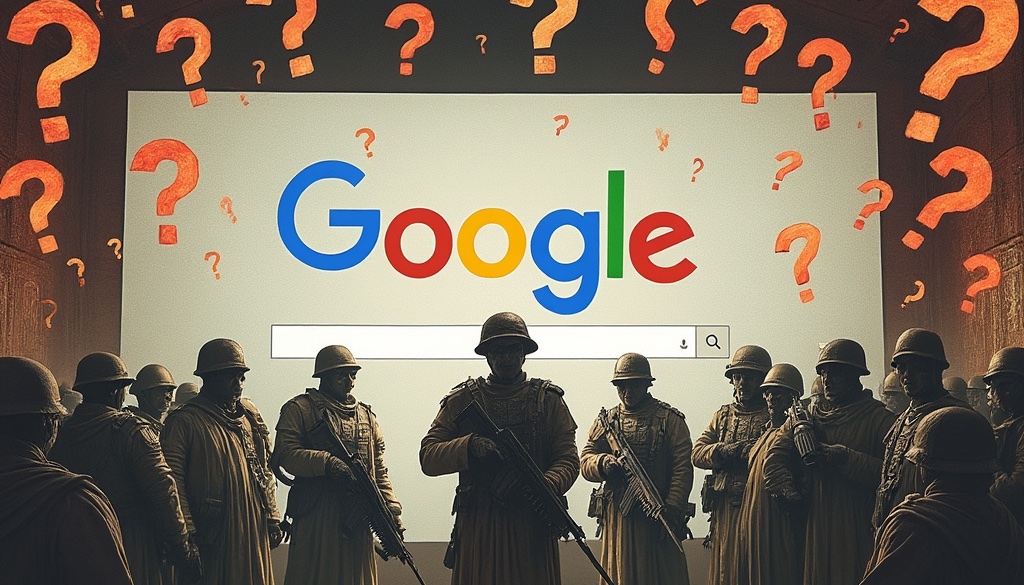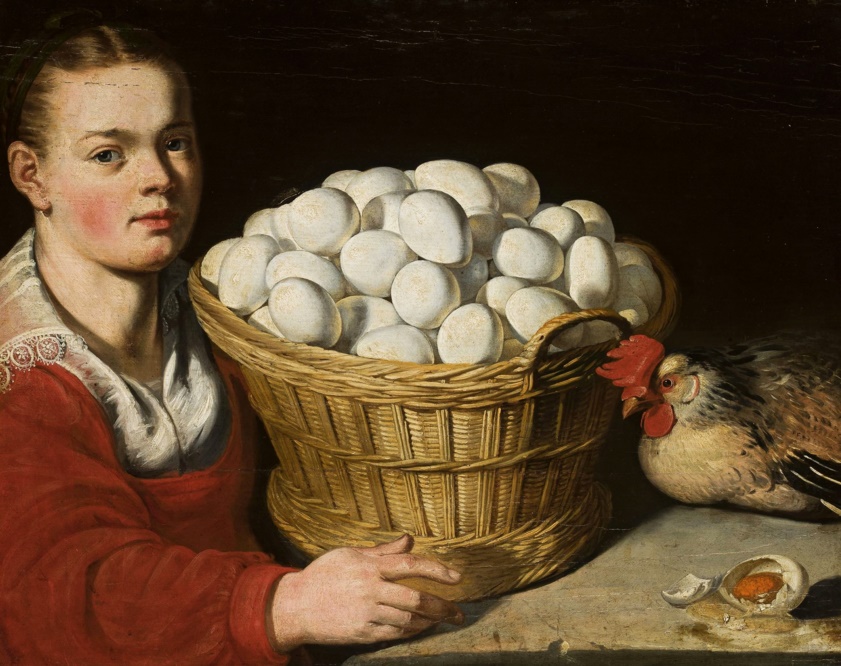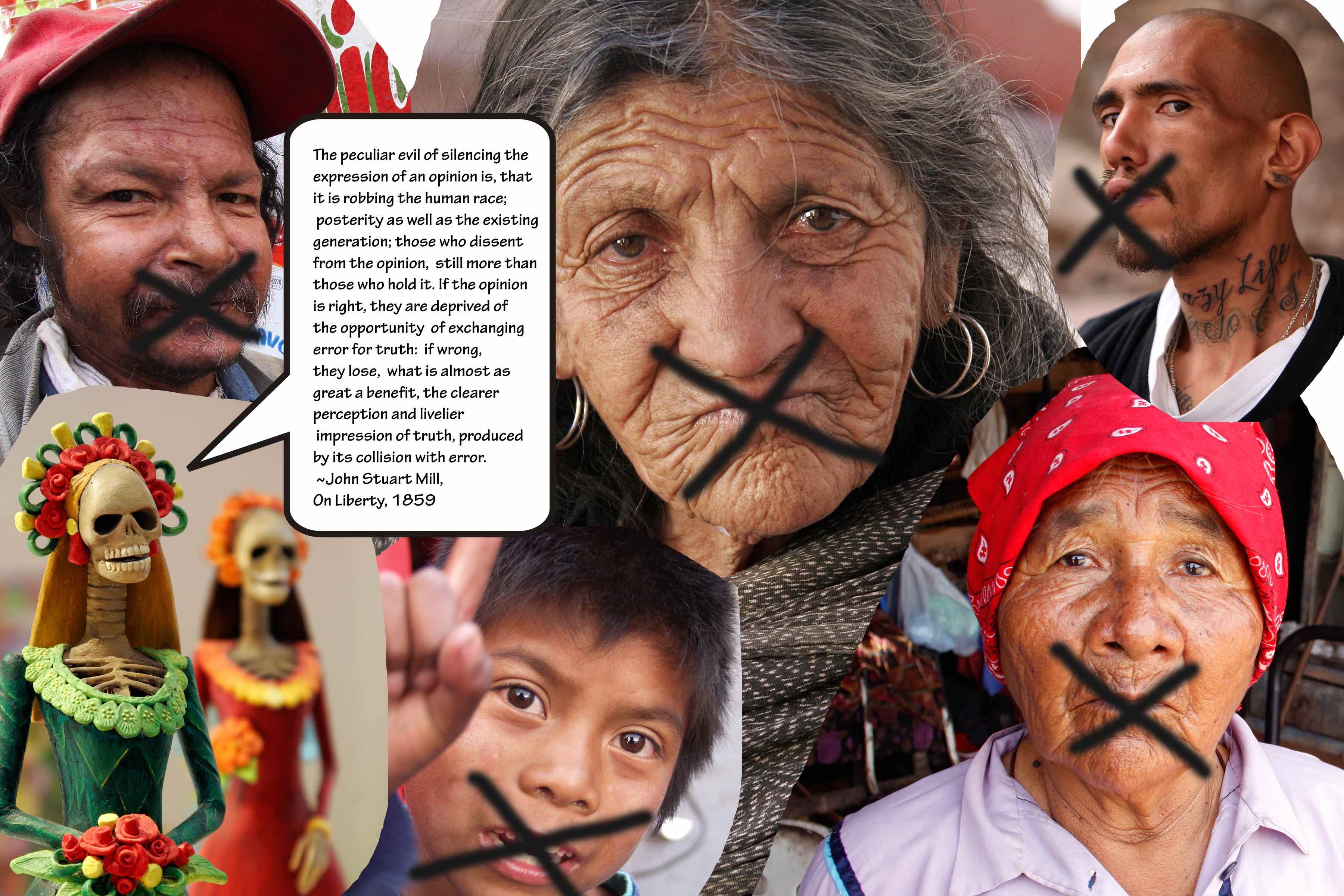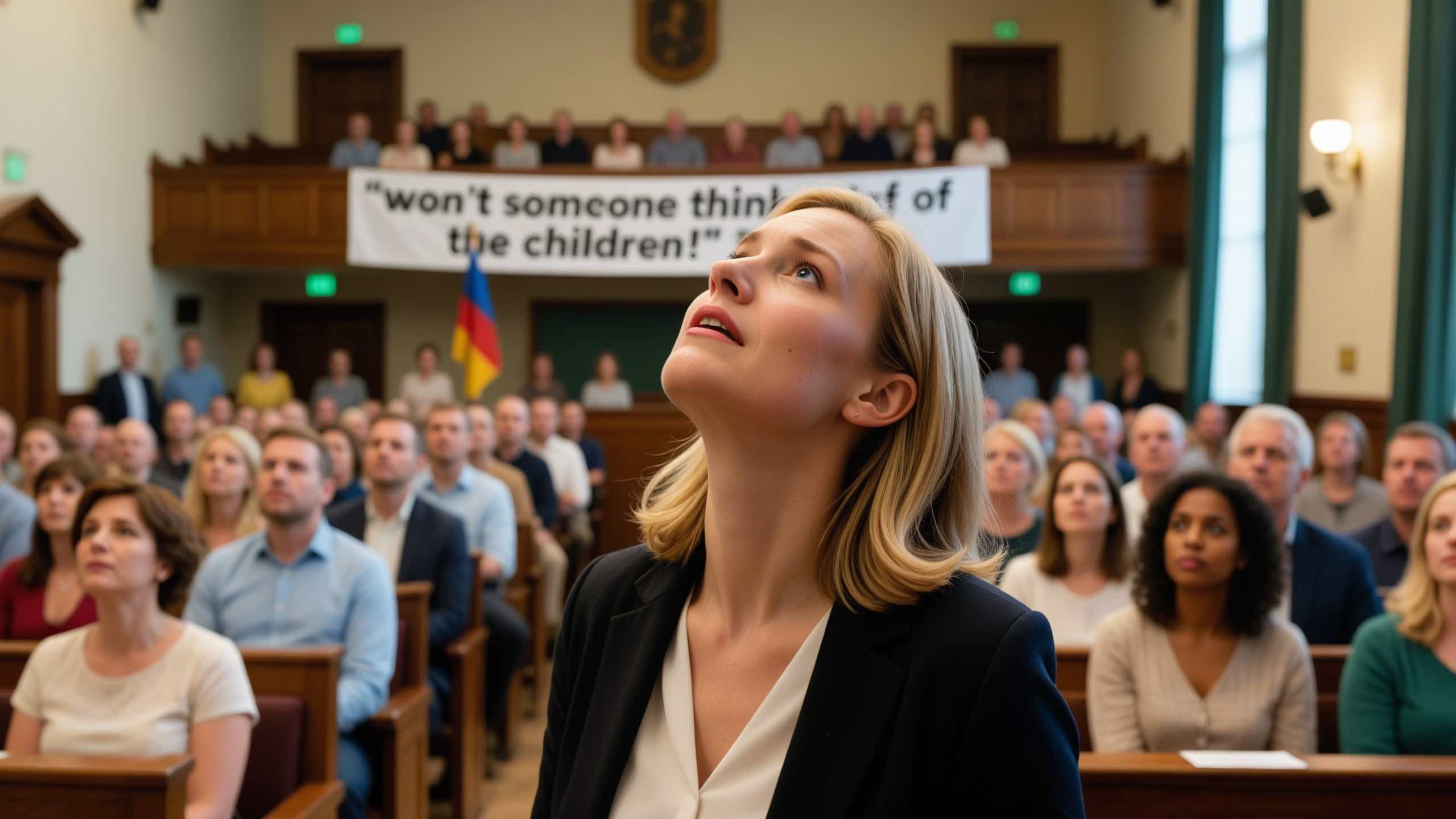
Won't someone please think of the children?
- Martin Enlund
- 11/11/25
New laws eroding privacy always follow a tired script: Invoke the “four horsemen of the infocalypse” to scare us into accepting surveillance “for the children” or “for security.” The reality is, neither our kids nor the public are any safer, just less free.
Chat Control 2: Digitalizing the Panopticon
- Martin Enlund
- 9/20/25
Europe’s assault on free speech has become widespread and far-reaching. In Germany, a journalist was fined and given a suspended prison sentence this spring for circulating a satirical image of the interior minister captioned “I hate free speech.”

You can't have your cake and eat it too
- Martin Enlund
- 1/18/25
Preparedness is a hot topic these days. In Europe, Poland has recently introduced compulsory lessons in weapons handling for schoolchildren for war-preparedness purposes. In Sweden, the Swedish Civil Contingencies Agency (MSB) has recently published the brochure “If crisis or war comes”.

On Car Seats and Censorship
- Martin Enlund
- 12/27/24
Fertility rates in Western countries have fallen to historically low levels in recent years - not a single Western country had a fertility rate above the replacement rate in 2023. The replacement rate being 2.1 children per woman. The driving forces are said to be several, such as better pension systems, increased demands for education, more women in the workforce, the fiat monetary system, and so on. However, it can be argued that the driving forces are rather few. Perhaps many can be summarized with the concept of “unpredictable consequences”. For who were those who, in their time, predicted that a more generous pension system, more years in school, or more women in the workforce would lead to a veritable collapse in birth rates?

What if the Green Facts Don't Add Up?
- Martin Enlund
- 12/22/24
Beneath the green rhetoric: A worrying picture is emerging, revealing that the EU’s green agenda may be stifling economic growth, compromising security, and undermining preparedness. Is the EU really in a position to afford the luxury of prioritising green ideals over the essential needs of its citizens’ economic well-being and national security?

No Green Future without Economic Prosperity
- Martin Enlund
- 12/19/24
Germany, the EU’s largest economy, is once again forced to bear the label “Europe’s sick man”. The economic news makes for dismal reading. Industrial production has been trending downward for a long time. Energy-intensive production has decreased by as much as 20% in just a few years. Volkswagen is closing factories. Thyssenkrupp is laying off employees and more than three million pensioners are at risk of poverty according to a study.

The Thin Veneer
- Martin Enlund
- 12/6/24
The Dutch primatologist Frans de Waal coined the term “veneer theory” in his book “Our Inner Ape” in 2005. The veneer theory posits that human moral behavior is merely a thin veneer over an inherently unpleasant nature. This viewpoint can be traced back to Thomas Henry Huxley, an anthropologist and biologist who was a contemporary of Darwin. However, de Waal criticized the idea because humanity is far more cooperative than predicted by simple anthropological or economic models. However, it is possible to question how thick this “civilizing veneer” really is.

Lost in the Haze: The Sense-Making Crisis
- Martin Enlund
- 11/19/24
Imagine a world where the very foundations of knowledge are in question. Where experts disagree on the most basic facts, and the public is left to navigate a sea of conflicting information. Welcome to our reality, where the process of knowledge creation has become unhinged. We’re facing numerous major challenges, from pandemics to climate threats, migration flows, and rapid technological development, such as Artificial Intelligence (AI). But beneath these surface-level issues lies a more profound problem: the mechanisms by which we produce, disseminate, and consume information have been severely disrupted, leading to a crisis of trust in the very foundations of knowledge itself.

Trust - best built on solid ground
- Martin Enlund
- 11/6/24
TL;DR: J.D. Vance recently observed that many in the Democratic Party are attempting to manufacture trust from the top down, neglecting the fact that genuine trust is often born from grassroots connections. There’s indeed a stark contrast between trust that’s artificially constructed through manipulation and censorship, and trust that’s organically cultivated from the ground up.

Technology that protects
- Martin Enlund
- 10/29/24
The Swedish government recently rejected the Transport Administration’s proposal for average speed cameras. The proposal would have meant constant surveillance of all vehicles, and critics argued for instance that it would have posed a threat to national security. Given the prevalence of IT breaches and data leaks today, it’s hard not to give them a point, even if the problems are often downplayed by both corporations, governments and organisations. After Facebook (now Meta) leaked account information for over half a billion users, internal mails revealed the company wanted to “normalise the fact that this happens regularly”.

AI as magic goggles
- Martin Enlund
- 10/24/24
Navigating today’s complex information landscape can be a daunting task. Algorithms, bot armies, censorship authorities, and trolls contribute to a thick fog of disinformation, reminiscent of the industrial smog that once shrouded the Ruhr Valley in Germany. Many fear that AI technology will exacerbate the problem.

The mathematics of trust (in the media)
- Martin Enlund
- 10/23/24
A recent wedding celebration for Sweden Democrats leader Jimmie Åkesson resulted in controversy, as one of the guests in attendance was reportedly linked to organized crime. Following this “wedding scandal”, a columnist noted that the party’s voters had not been significantly affected. Instead of a decrease in trust - which one might have expected - 10% of them stated that their confidence in the party had actually increased. “Over the years, the Sweden Democrats have surprisingly emerged unscathed from their numerous scandals,” she wrote. But is this really so surprising?

Anonymous accounts on social media – a threat to democracy?
- Martin Enlund
- 10/22/24
It was recently reported that Sweden’s Minister for Culture, Parisa Liljestrand, wishes to put an end to anonymous accounts on social media. The issue has been at the forefront following revelations of political parties using pseudonymous accounts on social media platforms earlier this year.

The Boiling Frog
- Martin Enlund
- 9/26/24
The boiling frog is a simple tale that illustrates the danger of gradual change: if you put a frog in boiling water, it will quickly jump out to escape the heat. But if you place a frog in warm water and gradually increase the temperature, it won’t notice the change and will eventually cook itself. Might the decline in cash usage be construed as an example of this tale?

Nothing new under the sun
- Martin Enlund
- 9/2/24
The ongoing debate surrounding freedom of expression may revolve more around determining who gets to control the dissemination of information rather than any claimed notion of safeguarding democracy. Similarities can be identified from 500 years ago, following the invention of the printing press.

Globalism makes freedom of speech impossible
- Martin Enlund
- 4/23/24
Last year there were burnings of religious books in Sweden, leading to a diplomatic crisis. During a press conference, Prime Minister Ulf Kristersson emphasized that the government is currently not planning to restrict freedom of speech, although some of his government colleagues seem to take a different view.

Central bankers talk the talk, but fail to walk the walk
- Martin Enlund
- 4/8/24
Trust is a topic increasingly being discussed. Whether it is trust in each other, in the media, or in our authorities, trust is generally seen as a cornerstone of a strong and well-functioning society. The topic was also the theme of the World Economic Forum at its annual meeting in Davos earlier this year. Even among central bank economists, the subject is becoming more prevalent. Last year, Agustín Carstens, head of the BIS (“the central bank of central banks”), said that “[w]ith trust, the public will be more willing to accept actions that involve short-term costs in exchange for long-term benefits” and that “trust is vital for policy effectiveness”.

The colour of the cat doesn't matter
- Martin Enlund
- 3/31/24
Jerome Powell, Chairman of the US Federal Reserve, stated during a hearing in March that the central bank has no plans to introduce a central bank digital currency (CBDCs) or consider it necessary at present. He said this even though the material Fed staff presents to Congress suggests otherwise - that CBDCs are described as one of the Fed’s key duties.

Globalism is the real pandemic
- Martin Enlund
- 9/16/23
TL;DR: Contrary to their stated goals, centralized solutions and globalism are poised to increase disaster risk, undermine knowledge production, impede economic growth, and hinder scientific progress. They should also be rejected on ethical grounds.
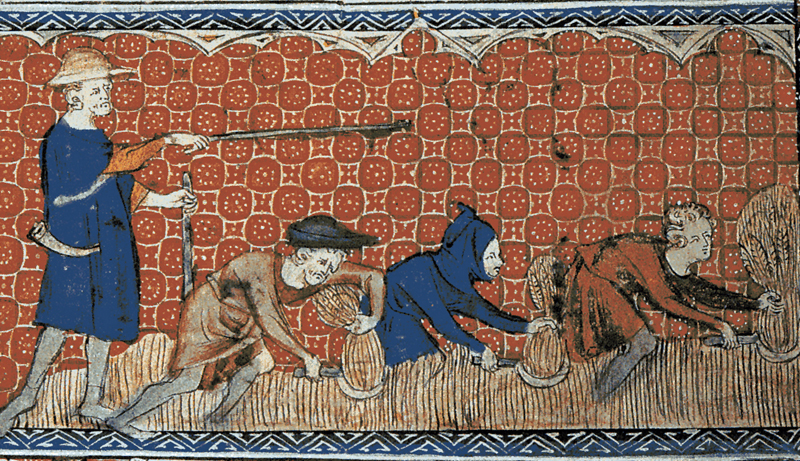
You will own nothing. And you will be unfree
- Martin Enlund
- 8/24/23
TL;DR: The contemporary world is displaying an increasing resemblance to the less favorable aspects of feudal historical periods. Individuals are increasingly being bound by obligations to adhere to specified ’terms of use’ and ‘core values’, which undermine our freedoms.

On linguistic issues
- Martin Enlund
- 8/5/23
Elon Musk asserted earlier this year that the media is “racist against white people.” This came after the creator of Dilbert, Scott Adams, was accused of “spewing racism,” which resulted in his comic strip Dilbert being removed from the country’s newspapers. Musk was quickly labeled as a racist.
You will have no freedom, and be happy
- Martin Enlund
- 2/5/23
Did you know that the Riksbank, the Swedish central bank, decided last year to burn 2.6 million kronor (Swedish currency) in cash that was found in a deceased person’s estate? That the central bank confiscated half a million kronor from a 95-year-old woman? That bank customers - individuals and businesses - are being de-platformed from banking services after trading in cryptocurrencies, that a major bank closed the account of a Swedish journalist last year, or that British banks are denying their customers the ability to transfer their own money to cryptocurrency exchanges?
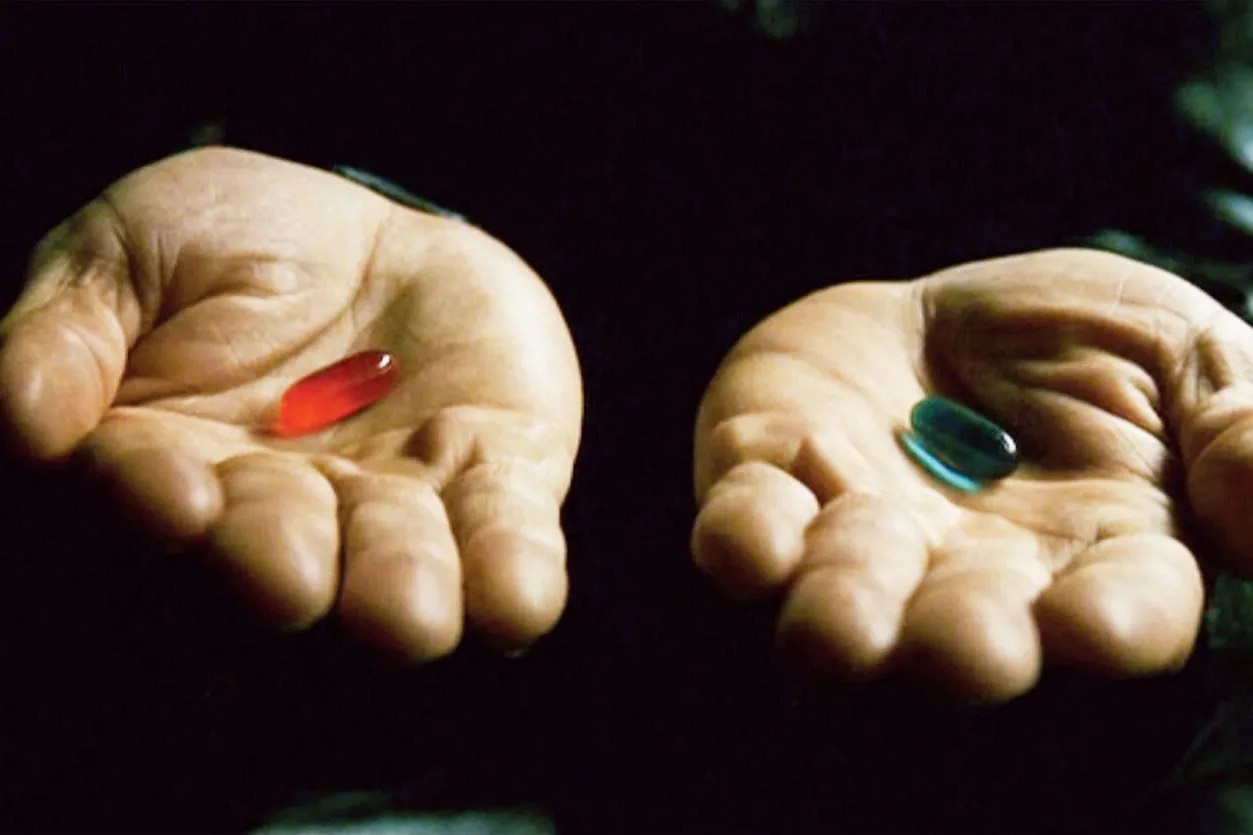
The Fed Pill
- Martin Enlund
- 1/29/23
In the iconic scene from the 1999 film The Matrix, the protagonist Neo is presented with a choice between two pills - the red pill, which reveals true reality, or the blue pill, which allows him to remain in his mundane existence, unaware of the choice he has made. This metaphor has become a popular trope on social media over the past decade, with the term “pill” being used to describe a sudden realization or enlightenment. The term is often used in the context of learning or gaining knowledge, and it is meant to evoke the idea of a “magic pill” that can instantly change one’s understanding or perspective on a subject.
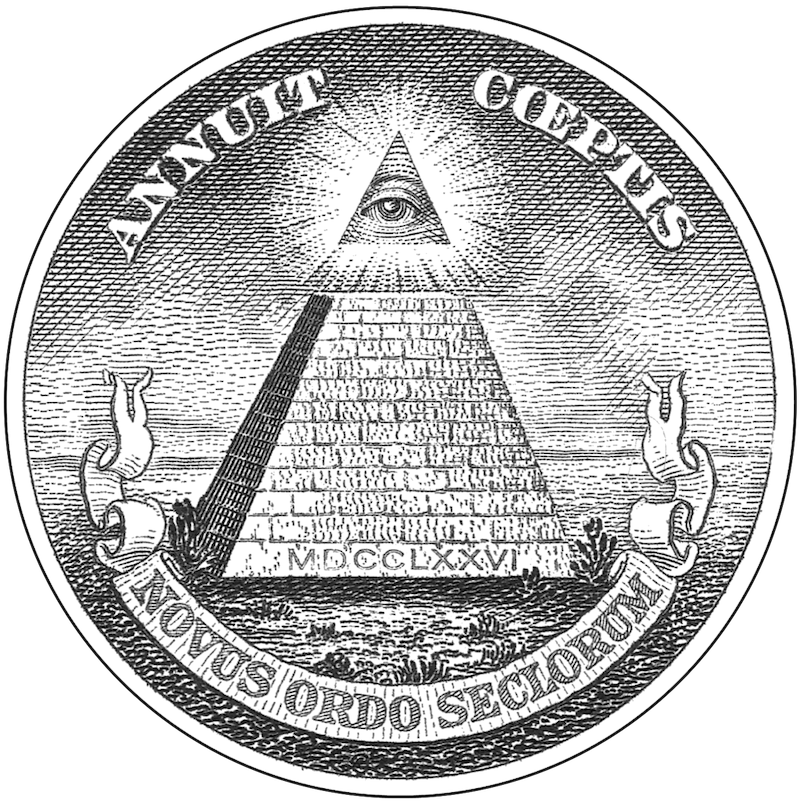
CBDCs - utopia, dystopia, or both?
- Martin Enlund
- 11/17/22
“What is going on!?” my three-year-old exlaimed at the breakfast table the other day. And it’s indeed a valid question. Energy and food prices have been skyrocketing, yet another epidemic (monkeypox) has recently appeared to be spreading - at least it was declared a global emergency this past summer, and the world’s central bankers are changing their minds so quickly one suspects that they might soon land on their buttocks (perhaps in butter).




